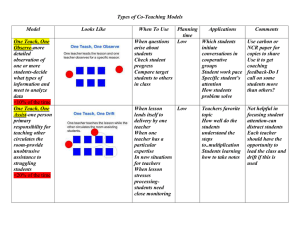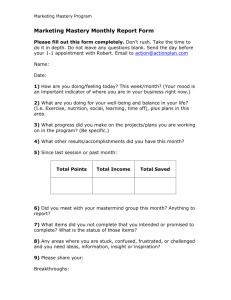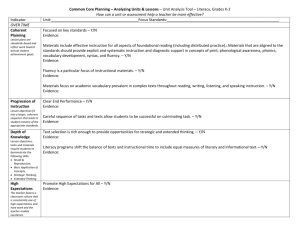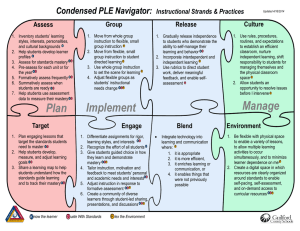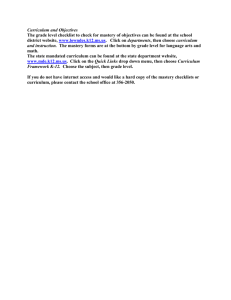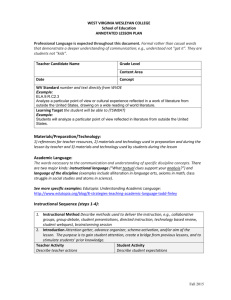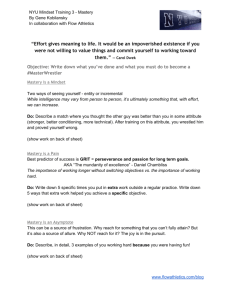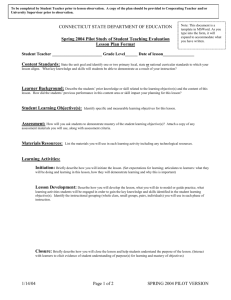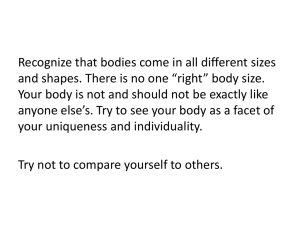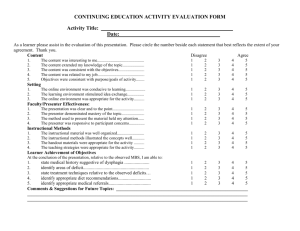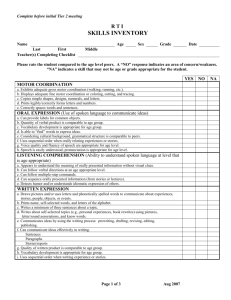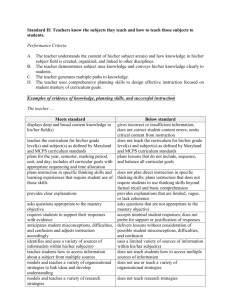9.38 INSTRUCTIONAL PROCESS
advertisement
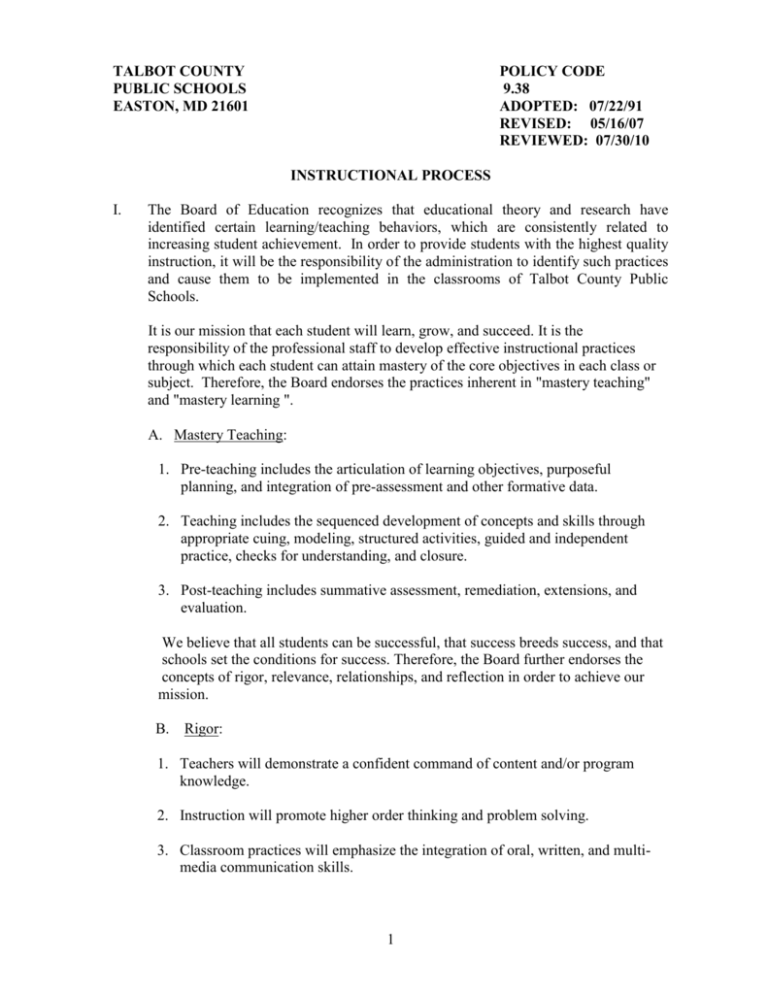
TALBOT COUNTY PUBLIC SCHOOLS EASTON, MD 21601 POLICY CODE 9.38 ADOPTED: 07/22/91 REVISED: 05/16/07 REVIEWED: 07/30/10 INSTRUCTIONAL PROCESS I. The Board of Education recognizes that educational theory and research have identified certain learning/teaching behaviors, which are consistently related to increasing student achievement. In order to provide students with the highest quality instruction, it will be the responsibility of the administration to identify such practices and cause them to be implemented in the classrooms of Talbot County Public Schools. It is our mission that each student will learn, grow, and succeed. It is the responsibility of the professional staff to develop effective instructional practices through which each student can attain mastery of the core objectives in each class or subject. Therefore, the Board endorses the practices inherent in "mastery teaching" and "mastery learning ". A. Mastery Teaching: 1. Pre-teaching includes the articulation of learning objectives, purposeful planning, and integration of pre-assessment and other formative data. 2. Teaching includes the sequenced development of concepts and skills through appropriate cuing, modeling, structured activities, guided and independent practice, checks for understanding, and closure. 3. Post-teaching includes summative assessment, remediation, extensions, and evaluation. We believe that all students can be successful, that success breeds success, and that schools set the conditions for success. Therefore, the Board further endorses the concepts of rigor, relevance, relationships, and reflection in order to achieve our mission. B. Rigor: 1. Teachers will demonstrate a confident command of content and/or program knowledge. 2. Instruction will promote higher order thinking and problem solving. 3. Classroom practices will emphasize the integration of oral, written, and multimedia communication skills. 1 INSTRUCTIONAL PROCESS C. Relevance: 1. Teachers will demonstrate knowledge of the developmental age of their students while maintaining high expectations for achievement. 2. Instruction will provide for the differentiated needs of students to accommodate their learning styles, processing traits, and rates of mastery. 3. Classroom practices will actively engage students in learning through their prior knowledge, interests, and life experiences. D. Relationships: 1. Teachers will demonstrate personal regard for all students and model appropriate interpersonal and collaborative skills. 2. Instruction will respect the cultural, linguistic, and ethnic background of all. 3. Classroom practices will promote a learning environment that is physically, intellectually, and emotionally safe for all children. E. Reflection: 1. Teachers will utilize assessments to guide improvement in teaching and learning, including re-teaching and retesting. 2. Instruction will provide explicit training in metacognitive processes, organizational context, and other self-monitoring skills. 3. Classroom practices will include timely, specific feedback to students on their performance to foster students’ ownership of their learning. The Superintendent will develop regulations to guide implementation of this policy. Administrators will monitor the instructional practices and work with the instructional staff to promote mastery of the learning objectives. -END- 2
